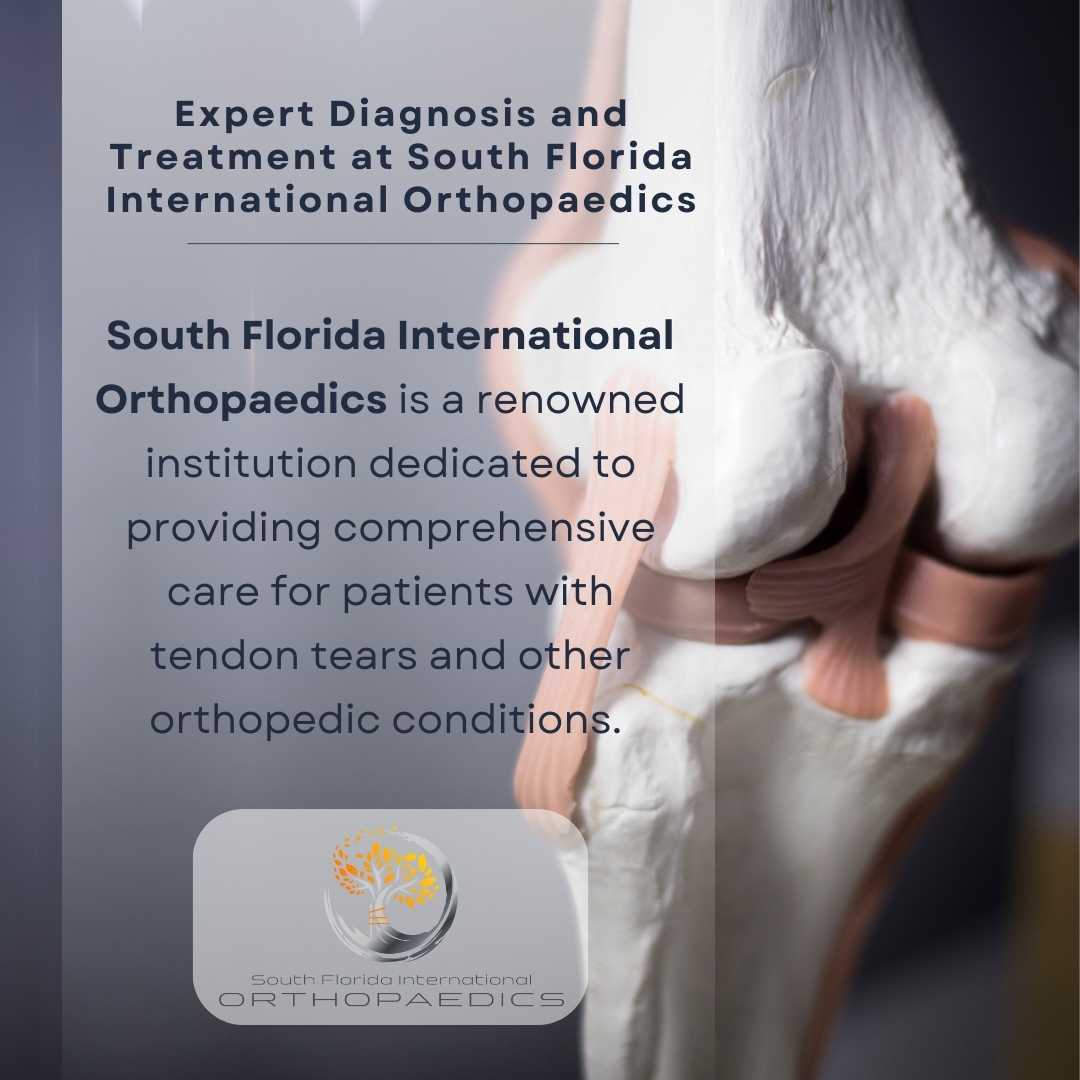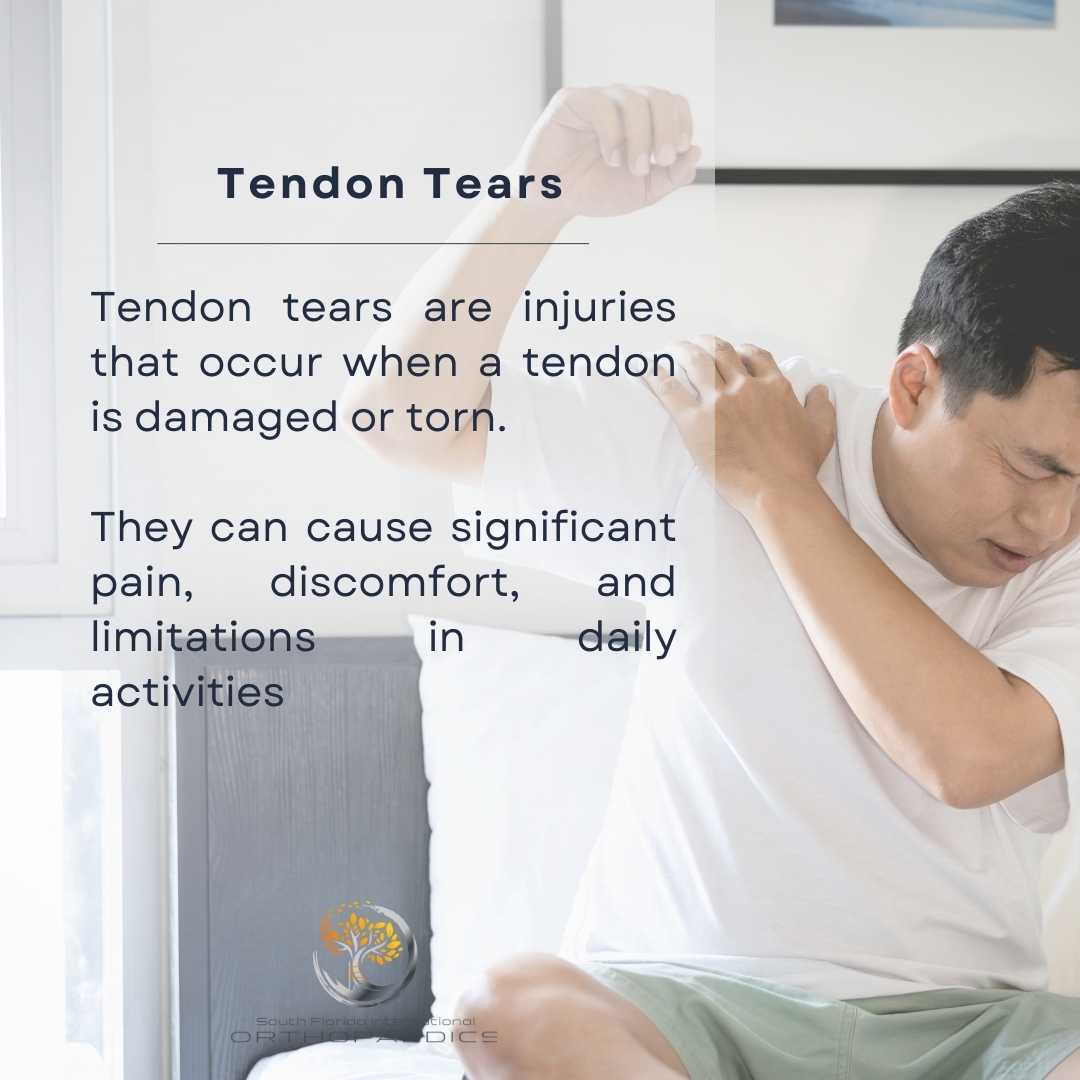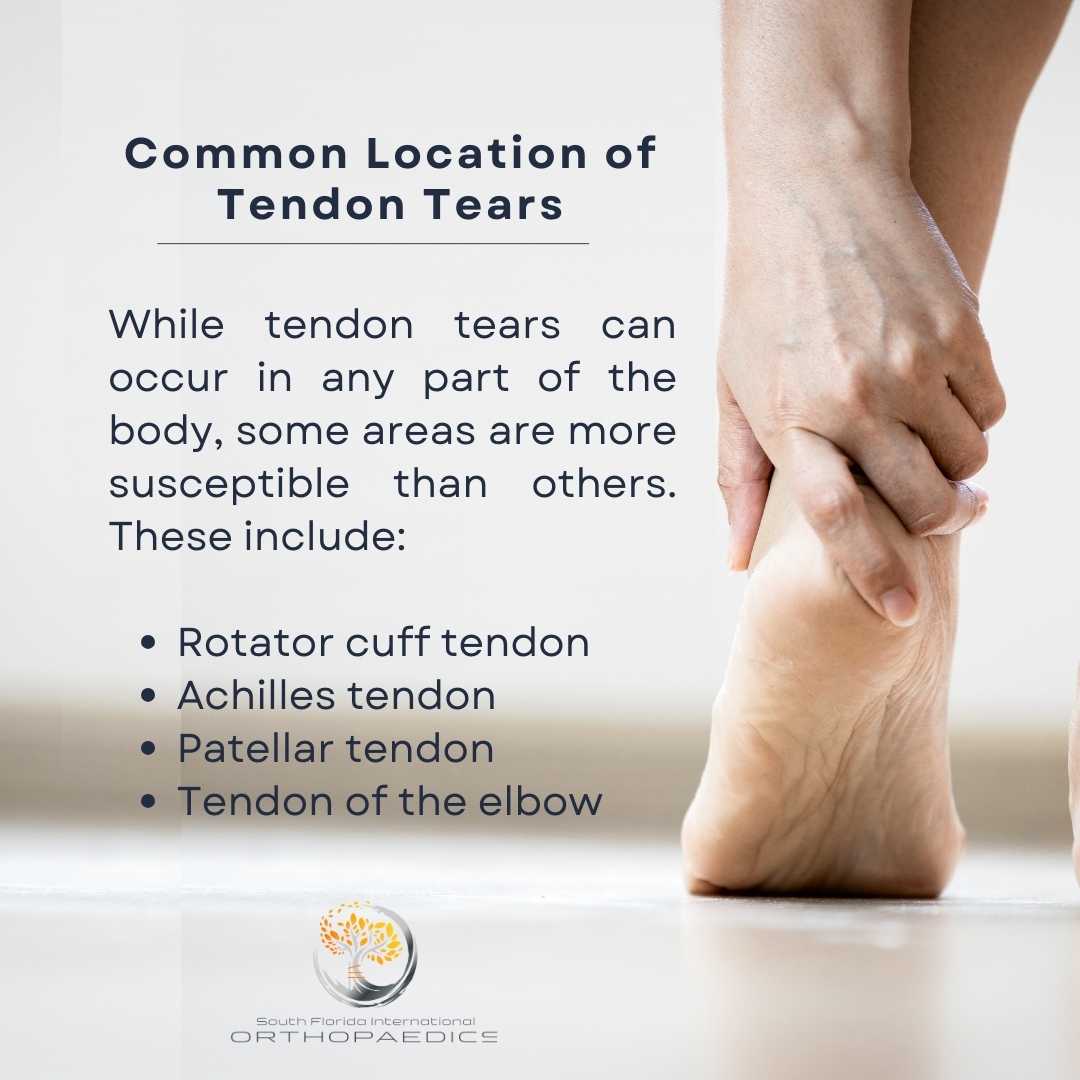Tendon Tears
Tendons are structures made of fibrous connective tissue in the body that attach muscle to bone, allowing muscles to contract and move a part of the body.
Muscles are important structures that allow us to exercise, perform sports, and work through the movement of our arms, legs, hands, and feet. Tendon tears can be thought of as a spectrum of a problem, from small partial tears to complete tears.

What are the different types of tendon tears?
Tendon tears are injuries that occur when a tendon is damaged or torn. They can cause significant pain, discomfort, and limitations in daily activities. Tendon tears can be classified in two ways:
Based on their severity
- Grade 1: This is a mild tear where the tendon is stretched but not torn. There is usually pain and tenderness but minimal swelling and weakness.
- Grade 2: This is a partial tear where a portion of the tendon is torn. There is more significant pain, swelling, and weakness than in a grade 1 tear.
- Grade 3: This is a complete tear where the tendon is torn completely. There is severe pain, swelling, and weakness, and the affected area may feel unstable.
Based on their location
- Rotator cuff tendon tears occur in the tendons connecting the rotator cuff muscles to the shoulder blade.
- Achilles tendon tears: These occur in the tendon that connects the calf muscle to the heel bone.
- Patellar tendon tears: These occur in the tendon that connects the quadriceps muscle to the shinbone.
- Tennis elbow: This is a condition caused by inflammation and microtears in the tendons of the elbow.
What are the symptoms of a tendon tear?
When a tendon is torn, typically there is pain and swelling that occurs when the injury first happens. Then, over time, the swelling improves, and the pain subsides, but the area of the body affected remains weak and painful. Other symptoms include:
- Localized tenderness and bruising
- Weakness in the affected area
- Limited range of motion
- A popping or snapping sensation
Additionally, it is common for the tear to prevent you from performing certain movements without considerable difficulty, weakness, and pain.
What causes tendon tears?

Tendon tears can occur due to a variety of factors, including:
-
Overuse injuries
Repetitive motions that put excessive stress on the tendons can lead to tears. This is common in athletes, musicians, and individuals who engage in physically demanding jobs.
-
Acute trauma
Acute trauma is caused by sudden, forceful injuries, such as falls or accidents, which can cause immediate tendon tears.
When you have a tendon tear, there will likely be a history of a traumatic event or accident that you recall when the symptoms began.
Sometimes, though, a minor trauma or accident may cause a partial tear that is not bothersome initially but becomes symptomatic over time as the tear slowly progresses and becomes larger.
-
Age-related degeneration
As we age, our tendons naturally become less elastic and more prone to injury, thus causing partial to complete tendon tears.
-
Underlying medical conditions
Certain medical conditions, such as diabetes and rheumatoid arthritis, can weaken tendons and increase the risk of tears.
What are the possible complications of tendon tears?
If you have a partial tear, over time, it may become larger and progress to a full tear, which is typically associated with worsening weakness and pain.
Full-thickness tears, particularly rotator cuff tears, retract over time and begin to scar down in a location far from where they tore. These tears have a window of time when they can be fixed, and if ignored for too long, they may not be repairable.
When to see your doctor?
If you have had an accident or are having difficulty moving a part of your body because of weakness or pain, you should see your physician for further evaluation. Remember, a delay in diagnosis may worsen your condition and affect your overall outcome.
What are the treatment options for tendon tears?
We understand that each tendon tear is unique. That’s why our experts will conduct a thorough evaluation to diagnose your condition and develop a personalized treatment plan. This may involve:
- Physical examination: Our doctors will assess your range of motion, strength, and pain levels.
- Imaging studies: X-rays, ultrasounds, or MRIs may be used to visualize the tendon and identify the extent of the tear.
Once a diagnosis is made, we will discuss your treatment options, which may include:
Non-surgical treatments
The treatment for a tendon tear will depend on the severity of the injury and the location of the tear. In many cases, non-surgical treatments are effective. These may include:
- Rest and ice: Resting the affected area and applying ice can help reduce pain and swelling.
- Compression and elevation: Wearing a compression bandage and elevating the injured area can also help reduce swelling.
- Physical therapy: A physical therapist can teach you exercises to strengthen and rehabilitate the injured tendon.
- Medications: Over-the-counter pain relievers, such as ibuprofen or acetaminophen, can help manage pain and inflammation.
Surgical treatments
In severe cases, surgery may be necessary to repair the torn tendon. This may involve suturing the tendon back together or using a graft to replace the torn tissue.
Our surgeons are highly skilled in performing various surgical techniques, including arthroscopic surgery and open surgery.
Recovery from a tendon tear can take several months or even longer. The healing process involves rest, physical therapy, and gradually increasing activity levels.
It is important to follow your physician’s instructions and avoid activities that could aggravate the injury.
South Florida International Orthopaedics: Your Trusted Partner for Tendon Tear Treatment
South Florida International Orthopaedics is a renowned institution dedicated to providing comprehensive care for patients with tendon tears and other orthopedic conditions.
Our team of experienced orthopedic surgeons, physical therapists, and sports medicine specialists are committed to delivering the highest quality of care using the latest techniques and technologies.

If you are suffering from a tendon tear, don’t hesitate to contact us today. We are here to help you get back on your feet and live a pain-free life. Our Miami orthopedics facility also specializes in other treatment services, such as:
- Sports medicine in Miami
- Orthopedic surgery in Miami, FL
- Independent medical examination
- Orthopedic regenerative medicine
- And more!
The material contained on this site is for informational purposes only and DOES NOT CONSTITUTE THE PROVIDING OF MEDICAL ADVICE, and is not intended to be a substitute for independent professional medical judgment, advice, diagnosis, or treatment. Always seek the advice of your physician or other qualified healthcare providers with any questions or concerns you may have regarding your health.






